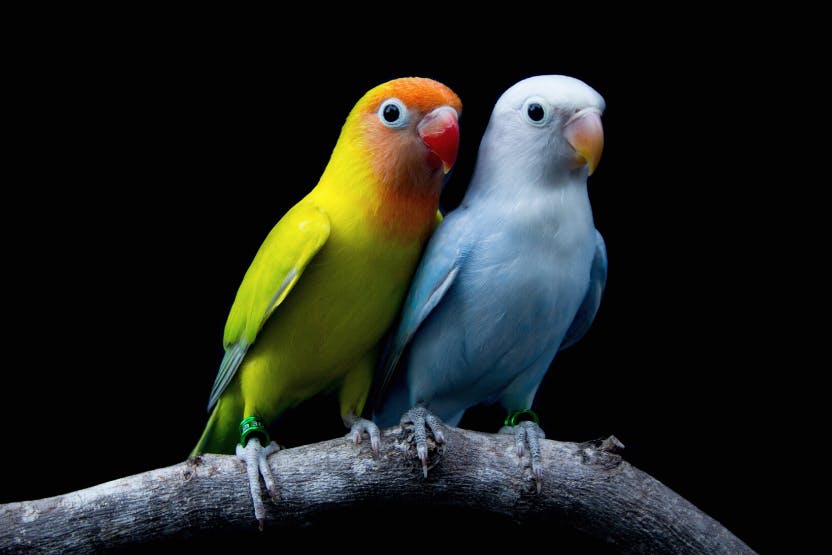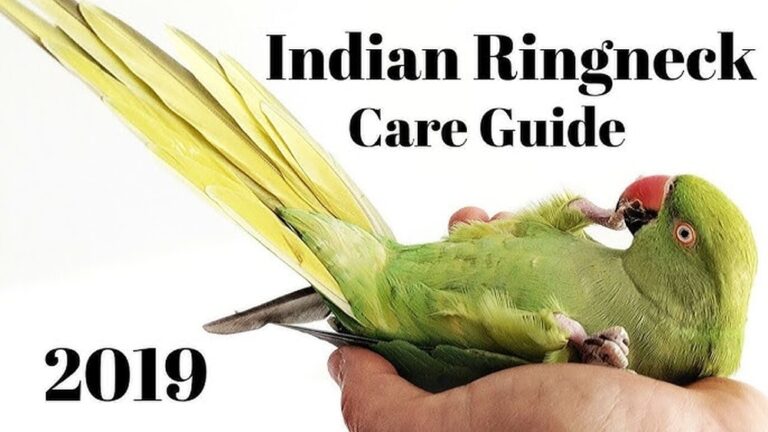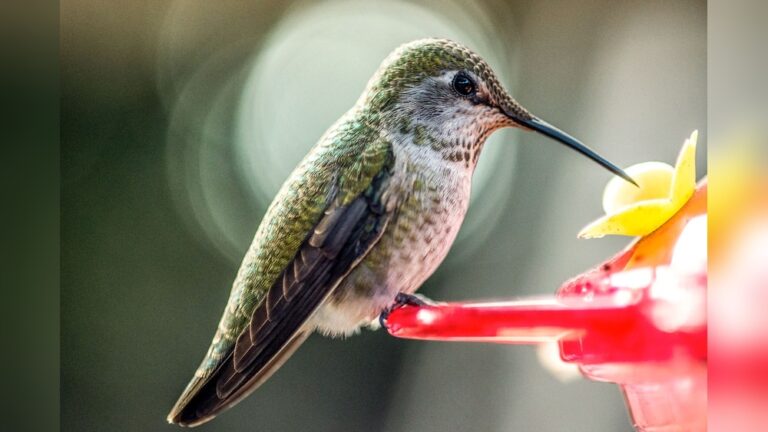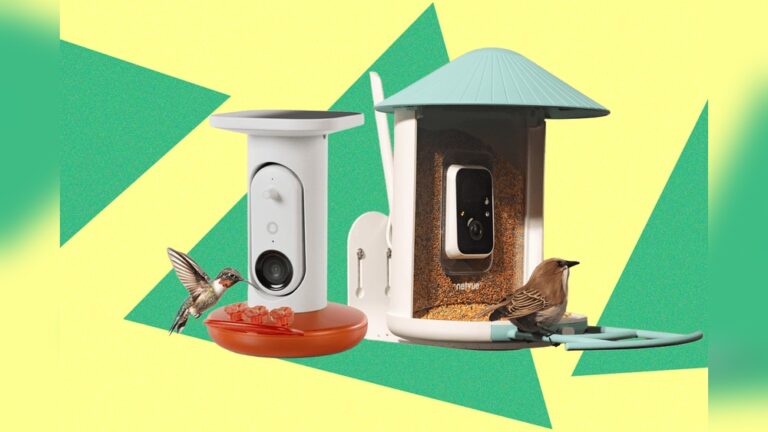How To Take Care Of Pet Birds
If you have a pet bird, you want to make sure it stays happy and healthy. Taking care of your feathered friend isn’t as hard as it might seem.
With the right tips and simple steps, you can create a safe and loving home for your bird. You’ll discover easy ways to feed, clean, and play with your pet bird, so it thrives every day. Keep reading to learn how to give your bird the best care possible!

Credit: wagwalking.com
Choosing The Right Bird
Choosing the right bird is the first step in caring for a pet bird. The right bird fits your personality and home. It makes the experience joyful and less stressful. Each bird species has unique needs and traits. Picking a bird that matches your lifestyle helps ensure a happy life for both of you.
Popular Pet Bird Species
Budgerigars, or budgies, are small and easy to care for. They enjoy social time and can learn to talk. Cockatiels are gentle birds with a friendly nature. They like interaction and can whistle tunes. African Grey Parrots are very smart and need lots of attention. They can mimic sounds and words well. Lovebirds are small and colorful. They are playful but need company or a partner. Each species offers different levels of care and interaction.
Matching Birds To Your Lifestyle
Consider your daily routine before choosing a bird. Budgies suit busy people because they need less attention. Cockatiels are good for families with kids. African Grey Parrots need more time and patience. They require mental stimulation and social interaction. Lovebirds are best for those who can spend time daily. Noise level is important. Some birds are louder than others. Space matters too. Larger birds need bigger cages and room to fly. Think about your budget for food and vet care.
Setting Up The Cage
Setting up the cage is the first step to care for your pet bird. A well-prepared cage keeps your bird safe and happy. It also makes cleaning and maintenance easier. Choose the right cage to suit your bird’s size and needs. Add the right accessories for comfort and fun. Place the cage in a spot that feels secure and calm for your bird.
Cage Size And Material
Pick a cage large enough for your bird to stretch its wings. Small cages cause stress and limit movement. Use cages made from non-toxic metal or stainless steel. Avoid cages with paint that can chip and harm your bird. Bars should be spaced right for your bird’s size. Too wide, and your bird may escape or get stuck.
Essential Accessories
Add perches of different sizes and textures for foot health. Include food and water dishes that are easy to clean. Toys like bells and mirrors keep your bird entertained. Use a cuttlebone or mineral block for beak care. Place a birdbath inside or near the cage for bathing. Change accessories regularly to keep your bird interested.
Safe Placement
Put the cage in a quiet room with natural light. Avoid direct sunlight to prevent overheating. Keep the cage away from drafts and air conditioners. Place it where your bird can see family activity. Avoid noisy or busy areas that cause stress. Ensure the cage is stable and cannot tip over easily.
Feeding Your Bird
Feeding your pet bird properly keeps it healthy and happy. Birds need a diet that gives them energy and nutrients. A good diet helps their feathers shine and supports strong bones. It also boosts their immune system to fight illness.
Balanced Diet Options
Offer a mix of seeds, pellets, and grains. Seeds are tasty but not enough alone. Pellets provide important vitamins and minerals. Grains like oats and barley add fiber. This mix ensures your bird gets varied nutrition.
Fresh Foods To Include
Fresh fruits and vegetables are vital for birds. Offer apples, carrots, spinach, and berries. Wash all fresh foods well before serving. Avoid citrus fruits, as they can upset birds’ digestion. Fresh water should be available all day.
Foods To Avoid
Never feed chocolate, caffeine, or alcohol to birds. These are toxic and can cause serious harm. Also avoid avocado, onion, and salty or sugary snacks. Cooked bones and dairy products are not safe for birds. Stick to bird-safe foods only.

Credit: wagwalking.com
Maintaining Hygiene
Keeping your pet bird clean and healthy depends on good hygiene. Clean surroundings help prevent diseases. Birds live happily in a tidy space. Daily care keeps your bird lively and strong.
Cleaning The Cage
Clean the cage regularly. Remove old food and droppings each day. Wash the cage at least once a week with warm water and mild soap. Rinse well to remove soap. Dry the cage before putting your bird back inside. Use safe cleaning tools that do not harm your bird.
Bathing Your Bird
Birds need baths to keep their feathers clean. Offer a shallow dish of water or use a spray bottle with lukewarm water. Let your bird bathe gently. Avoid cold water to prevent chills. Bathing helps remove dust and dirt from feathers. It also keeps your bird’s skin healthy.
Preventing Illness
Good hygiene reduces sickness risks. Wash your hands before and after handling your bird. Keep food and water fresh every day. Avoid overcrowding the cage to reduce stress. Watch for signs of illness like fluffed feathers or loss of appetite. Clean your bird’s toys and perches regularly to stop germs.
Social Interaction
Social interaction is vital for pet birds. Birds are social creatures. They need attention and connection to stay happy. Lack of interaction can cause stress and loneliness. Spending time with your bird builds trust and strengthens your bond. Birds enjoy play, talking, and gentle touch. Understanding their social needs helps keep them healthy.
Bonding Techniques
Start bonding by talking softly to your bird. Let it get used to your voice. Offer treats from your hand to build trust. Spend time near the cage without sudden moves. Gentle petting helps many birds feel safe. Play simple games to keep your bird engaged. Patience is key. Bonds grow slowly but deeply.
Recognizing Bird Behavior
Watch your bird’s body language carefully. Fluffed feathers can mean comfort or illness. A quiet bird may feel safe or scared. Chirping often shows happiness. Aggressive pecking signals fear or stress. Tail wagging means excitement. Learn these signs to respond well. Knowing behavior improves your connection.
Introducing New Birds
Introduce new birds slowly and carefully. Keep them in separate cages at first. Let them see and hear each other. Watch for signs of stress or aggression. After days, allow supervised short meetings. Never force interaction. Patience helps new birds accept each other. A calm introduction leads to a peaceful home.
Health Care Tips
Taking care of your pet bird’s health is very important. Healthy birds live longer and feel happier. Knowing basic health care tips helps you protect your feathered friend. Watch your bird daily for signs of sickness or stress. Early action can prevent serious problems. Here are some key points to keep your bird healthy.
Common Bird Ailments
Birds can get many illnesses. Some common problems are respiratory infections, mites, and digestive issues. Signs include sneezing, coughing, feather loss, and changes in droppings. Lethargy and loss of appetite also show sickness. Keep an eye on these signs every day. Quick detection helps your bird recover faster.
When To Visit A Vet
Visit a vet if your bird shows unusual behavior. If it stops eating or drinking, seek help. Difficulty breathing or strange droppings need urgent care. Sudden changes in weight or feather condition also need attention. Regular check-ups with an avian vet are good. They can spot problems before they get worse.
Preventive Measures
Prevent illness with good hygiene and diet. Clean the cage and food bowls often. Provide fresh water and nutritious food daily. Avoid drafts and extreme temperatures around your bird. Give your bird enough space to move and exercise. Keep new birds separate until they are healthy. These steps reduce risk of disease and keep your bird strong.
Training Basics
Training pet birds helps build trust and a strong bond. It also keeps your bird active and happy. Start with easy steps to make learning fun and stress-free. Consistency and patience work best for training success.
Simple Commands
Begin with basic commands like “step up” or “come here.” Use a calm voice and gentle hand gestures. Reward your bird with treats or praise for following commands. Repeat commands daily in short sessions to help your bird remember.
Encouraging Positive Behavior
Focus on rewarding good behavior immediately. Treats and kind words motivate your bird to repeat actions. Avoid punishing mistakes; instead, redirect your bird calmly. Positive reinforcement helps your bird learn faster and feel safe.
Avoiding Stress
Keep training sessions brief to prevent tiring your bird. Watch for signs of stress like flapping or squawking. Stop training if your bird seems scared or upset. A calm environment with quiet sounds helps your bird relax and enjoy learning.
.png)
Credit: www.kaytee.com
Travel And Safety
Traveling with pet birds requires careful planning and safety measures. Birds are sensitive to changes and can get stressed easily. Ensuring their comfort and security during travel is very important. This section covers how to keep your bird safe and calm while on the move.
Safe Transport Methods
Use a sturdy, well-ventilated carrier designed for birds. Avoid open cages during travel to prevent escapes. Line the carrier with soft material to cushion bumps. Keep the carrier away from direct sunlight and drafts. Secure the carrier in a stable spot to stop it from moving.
Travel Preparation
Allow your bird to get used to the carrier before the trip. Feed your bird a light meal a few hours before traveling. Provide fresh water in a spill-proof container. Avoid loud noises and sudden movements near your bird. Plan the trip during cooler parts of the day for comfort.
Emergency Precautions
Carry a basic first aid kit for birds. Have contact details of a nearby vet ready. Know how to handle stress signs like heavy breathing or lethargy. Avoid feeding new foods during travel to prevent upset stomachs. Keep calm to help your bird stay calm too.
How Smart Pets Lover Can Help You with How To Take Care Of Pet Birds
Learning Through Caring: Practical Steps to Deepen Your Bond with Pet Birds
Taking care of pet birds is more than just a routine; it’s an ongoing journey of learning and connection. As you’ve explored topics like setting up the cage, feeding your bird, and maintaining hygiene, remember that each step offers a chance to observe and understand your feathered friend better. For instance, adjusting their diet based on their behavior or tweaking cage placement to encourage social interaction can reveal so much about their personality and needs.
- Keep a daily journal to track feeding habits and health observations, helping you spot changes early.
- Practice training basics regularly to build trust and stimulate your bird’s mind.
- Stay informed on health care tips by connecting with avian vets or trusted resources like Smart Pets Lover’s expert guides.
By embracing these practical learning opportunities, you’re not just caring for a pet—you’re nurturing a meaningful relationship where every chirp truly tells a story. Should you ever need guidance, reaching out to knowledgeable communities or professionals can make all the difference in your bird’s well-being and your confidence as a pet parent.
Frequently Asked Questions
How Often Should I Clean My Pet Bird’s Cage?
Clean your bird’s cage weekly to maintain hygiene. Remove droppings, food debris, and replace cage liners. Regular cleaning prevents infections and keeps your bird healthy and happy.
What Is The Best Diet For Pet Birds?
Provide a balanced diet with seeds, pellets, fresh fruits, and vegetables. Avoid chocolate, caffeine, and avocado as they are toxic to birds. Fresh water should be available at all times.
How Can I Keep My Pet Bird Mentally Stimulated?
Offer toys, puzzles, and regular interaction to prevent boredom. Rotate toys weekly and provide opportunities for flight or play outside the cage safely.
How Do I Ensure My Pet Bird Stays Healthy?
Schedule regular vet check-ups and monitor for changes in behavior or appetite. Maintain a clean environment and provide a nutritious diet to support overall health.
Conclusion
Caring for pet birds takes time and patience. Provide fresh food and clean water daily. Keep their cage tidy and safe. Spend time talking and playing with them. Watch their health and behavior closely. Birds need love to stay happy and strong.
Small steps make a big difference for your pet. Enjoy the special bond you build together. Caring well helps birds live long, joyful lives.






